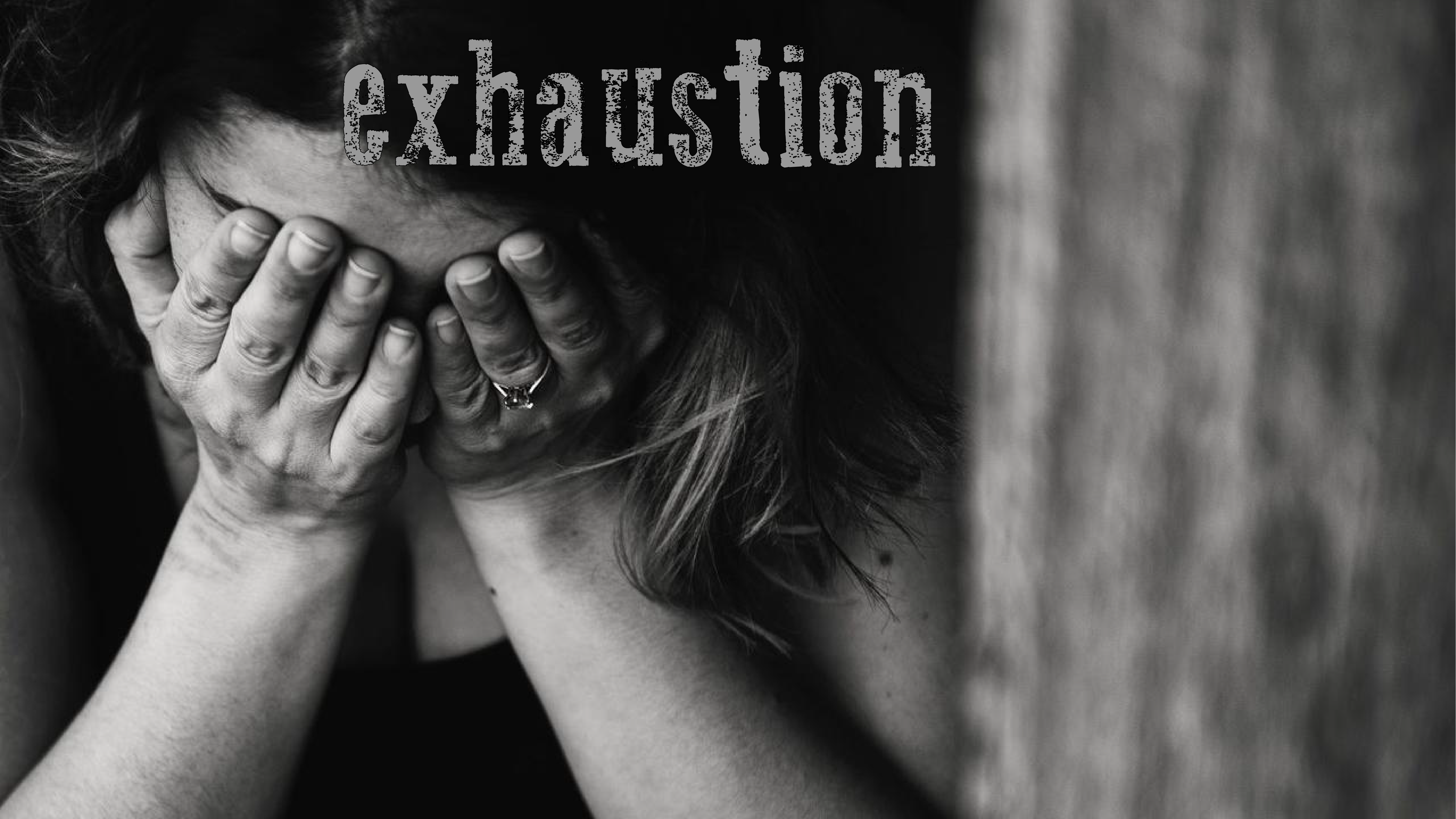
The word exhaustion comes from the Latin work exhaustion meaning to drain out. It’s come today to mean for us extreme mental or physical fatigue, when you, or something, is completely used up.
It’s a word that many use today to describe themselves, our society, our worldview. We’re exhausted by the non-stop news cycle, from the contact lurching from one chaotic moment to the next. It’s how our government is being run. It’s the reality emerging from our massive technological shifts to which our institutions seem unable to adequately respond. It’s the new social order with which we’re wrestling as national borders seem to disappear in our increasingly multicultural flat world. It’s the cost of fighting exploding traffic, stratospheric housing costs, and work-life-balance that is at a tipping point.
The word doesn’t appear in the Bible, as it came into being really in the 1600s in English. But Jesus doesn’t talk about it in Matthew 11:28-30 when he says,
Come to me, all you that are weary and are carrying heavy burdens, and I will give you rest. Take my yoke upon you, and learn from me; for I am gentle and humble in heart, and you will find rest for your souls. For my yoke is easy, and my burden is light.
The curious thing about the statement, besides its beauty, is that a yoke actually reduces the energy that is required and expended. Two yoked animals get more work done with less energy than two unyoked ones. So what’s Jesus getting at?
Questions for the practice of Examen & Contemplation
- How are you exhausted, spent, completely dried up in terms of empathy, creativity, grace, or patience?
- How do you need an easier yoke and a lighter burden?